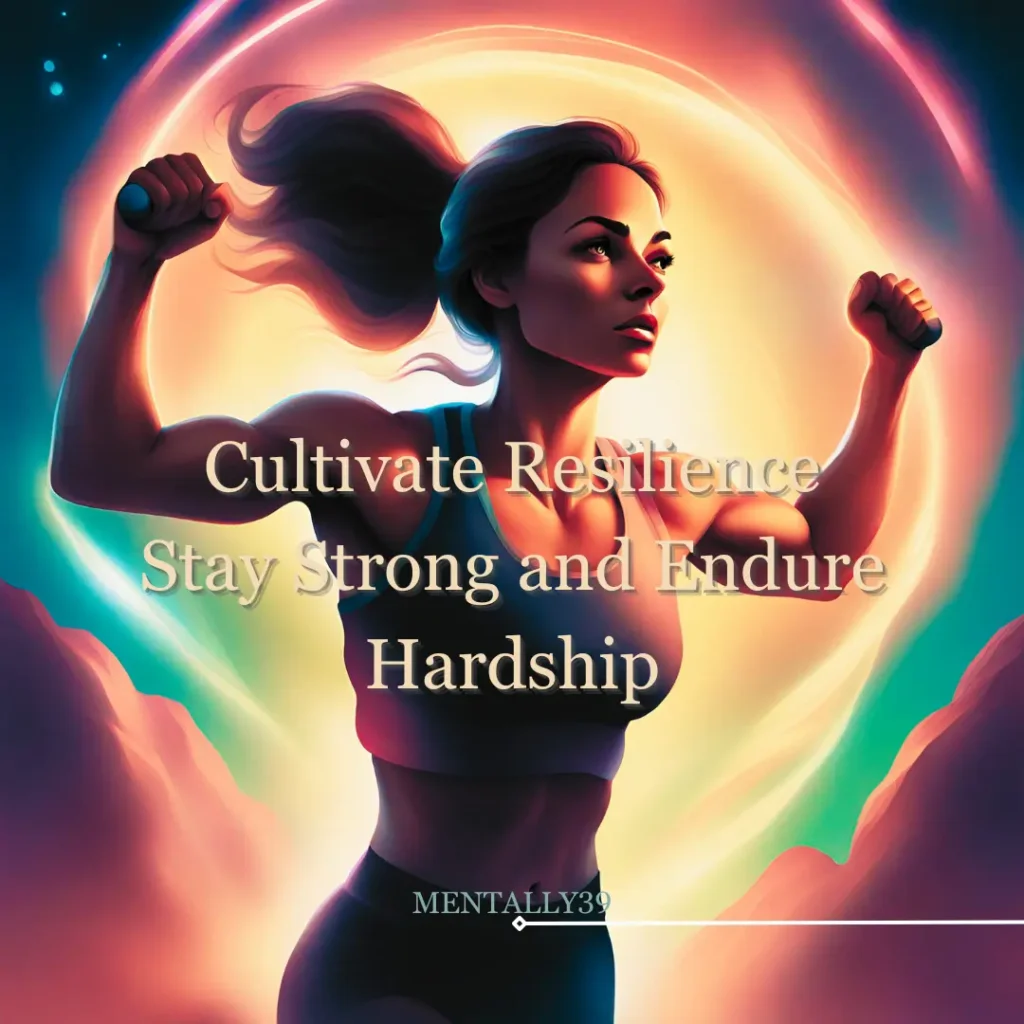“Out of suffering have emerged the strongest souls; the most massive characters are seared with scars.” – Khalil Gibran.
To cultivate resilience, we need to understand the meaning of these words; we realize that being resilient and successful in difficult situations is like steel being made in fire. Being strong is not something that only some people are born with, but it’s something that we can all develop together. It’s about how we recover from hard times and use them as opportunities to grow as a person. Whether we face setbacks in our personal lives or our careers, having the skill to be strong helps us withstand tough times and come out stronger in the end, which is more important now than ever.
We all can become more resilient. The key lies in understanding and practicing the ways to develop resilience. It’s about fortifying our mental and emotional scaffolding—to buffer against the inevitable winds of change and challenge and accelerate our recovery post-crisis. By building our inner strength, we empower ourselves with the essential tools to navigate any obstacle life throws us. This is our collective journey in exploring how to cultivate unshakable resilience that endures through even the most challenging times.
Key Takeaways
- Understand resilience as a skill that enables us to adapt and recover from adversity.
- Recognize the importance of toughness as essential to handling life’s challenges.
- Identify practical ways to develop toughness and weave them into our daily lives.
- Explore how we can both individually and collectively build stability.
- Embrace ‘bouncing back’ as a fundamental aspect of becoming more agile and resilient.
- Commit to personal growth and strength-building through resilience-centric strategies.
Understanding Resilience and Its Significance
As we work on being stronger in tough times, it’s important to understand what’s within us and how it affects our well-being. Experts from the American Psychological Association and the Mayo Clinic have shown how being resilient helps us cope with challenges. Let’s look at how our mental state affects our resilience and how embracing our strength can help us turn harsh times into opportunities for growth.
The Definition of Resilience
Resilience is the ability to bounce back from tough situations and adapt to change. It’s not just about surviving but also about coming out of difficult times stronger and wiser. Psychologists call it psychiatric resilience, and it’s a sign of our ability to endure and thrive in spite of challenges.
The Connection Between Resilience and Mental Health
It’s important to understand how being resilient can help our mental health. Resilience is like a shield that protects us from feeling sad or stressed out when we’re going through challenging times. By learning how to overcome it, we can develop skills to manage the effects of stress, depression, and anxiety. This can help us feel better and take care of our mental health. Building resilience is a valuable tool that can help us feel happier and healthier.
The Role of Resilience in Overcoming Life’s Challenges
As we go through life’s unexpected twists and turns, learning how to be tough and bounce back from hard times is important. This toughness comes from our inner force, which we can strengthen by working regularly and never giving up. When we have this internal strength, we can handle tough situations and stress better, which helps us grow and be healthier.
The Foundation of Resilience: Building Inner Strength
Life is full of unexpected events and situations that can test our strength. To be able to handle stress and overcome challenges, we need to develop our resilience through practice and determination. Resilience is important for our personal growth and well-being, allowing us to adapt to challenges easily. The resilience resource center offers us tools and techniques to enhance our coping skills, such as mindfulness, which helps us to stay calm and composed in difficult situations.
Sometimes, we can find satisfaction in overcoming our struggles, which can boost our self-worth and help us come back from setbacks with a renewed sense of purpose.
- Acknowledging our resilience enforces the belief that we are capable and resourceful.
- Developing consistent mindfulness habits can stabilize our emotional landscape.
- Exploring our resilience through challenges fosters unparalleled growth.
- Strengthening the self encourages a positive perspective on one’s life journey.
Together, as we raise our resilience and tap into the power of our internal strength, we’re not merely preparing to withstand adversity but setting the stage for a transformative journey that will culminate in a richer, more refined version of ourselves.
Cultivate Resilience: Embracing Growth Mindset and Adaptability
As we go through life, we face many challenges. How we handle these challenges can greatly impact our personal growth and success. To overcome these challenges, we must learn to be resilient and have a positive attitude toward growth and change. Instead of giving up when things get tough, we should see these challenges as opportunities to improve ourselves and become stronger.
- Growth Mindset: When we cultivate a growth mindset, we see each challenge as a chance to learn and expand our horizons. This outlook empowers us to persevere and employ positive coping strategies that facilitate our progress despite difficulties.
- Adaptability: Coupled with a growth perspective, adaptability is the skill to mold our approach to fit new and unexpected situations. This flexibility allows us to manage stress and navigate the waters of change effectively.
- Setbacks as Lessons: By reframing setbacks as critical lessons rather than failures, we open ourselves to new avenues of growth. This reshaping of perspective is pivotal in cultivating resilient responses and characteristics within us. By slowing down, ruminating over our thoughts, and maybe feeling less, we can live more.
Resilience in the face of tough times is not something you’re born with, but it’s something you can learn. To do this, we need to train ourselves to value growth and resilience, even when life is unpredictable. If we can do this, we can become better at surviving and thriving. By being adaptable and having a mindset shift, we can turn challenges into opportunities on our journey.
Strategies to Enhance Personal Resilience
The ability to weather life’s storms doesn’t happen by chance—it’s developed through deliberate efforts and strategic actions. As we explore the pathways to enhance personal resilience, we realize that our mental toughness is woven through supportive relationships, clearly defined aspirations, and comprehensive self-care practices. These components are crucial in resilience training, fostering our ability to rebound from challenges and emerge with a sense of well-being and a thriving, meaningful life.
Connecting with Supportive Communities
Surrounding ourselves with individuals who offer encouragement and understanding is one of the best ways to cultivate resilience. Engaging in communities that provide social support is a cornerstone for enhancing personal resilience. Whether through local groups, professional networks, or even online forums, the presence of supportive relationships helps us feel connected and grounded. Embracing the support of others prepares us to face challenging situations, arming us with a sense of belonging that can illuminate the path through life’s challenges.
Setting Meaningful Goals for Future-Oriented Thinking
Our capacity to look ahead optimistically is buoyed by setting goals that direct our journey. These markers, informed by future-oriented thinking, provide structure and purpose, reinforcing our commitments in times of flux. When we craft our aspirations, we define a meaningful life. By revisiting and refining our aims, we adapt proactively to change, ensuring our goals remain relevant and stimulating. This process is not just about reaching milestones; it’s about continually carving a path that resonates with our values and ambitions.
Self-Care as a Pillar of Resiliency
The foundation of our strength is often found in the quieter moments of life—the routines we install around self-care. Prioritizing our physical and emotional needs through exercise, balanced nutrition, rest, and mindfulness practices is pivotal in maintaining resilience and well-being. When we invest in self-care, we build a reserve of energy and positivity that can sustain us through future trials. Affording time for activities that replenish us is not an indulgence but a necessity to equip ourselves with the fortitude required for life’s ongoing challenges.
You can see there are several ways to acquire resilience; it takes time. Maybe you need to seek out the help of a mental health professional to help you regain yourself and grow as a person. But you have the ability to adapt and grow. Support is a key to developing social connections, whether online or in person. Read books or listen to podcasts of what someone did in a similar situation. Someone or something healthy is out there to help you deal with your adversity. Stay strong, my friends.

20+ Years as a Special Education Teacher
NASM Certified Nutrition Coach,
Certified Trauma Informed Trainer
Mindset and Motivation Master Life Coach
